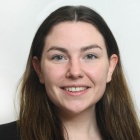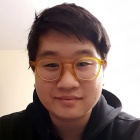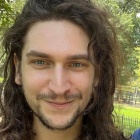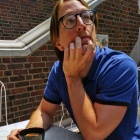Graduate Directory

Katrina Johnson
Katie Johnson
kejohnso@buffalo.edu
Awards:
Adam Smith Fellowship (2024) Mercatus
Social Impact Fellowship (2023), CAS, University at Buffalo
Katie Johnson studies how social norms perpetuate inequality by creating hidden forms of coercion between people. Using game theory, she analyzes these dynamics with a focus on misogyny, though her framework applies to other forms of structural oppression. She also uses experiments to bridge social science and philosophy whiler efining research questions about the normative structure of the social world. Incorporating insights from political economy, she aims to build better political theories fit for a complex and diverse society.

Noah Kim
Noah Kim, BA, Political Science, University of Maryland; MA, Philosophy, Biola University, La Mirada, CA
njkim4@buffalo.edu
Interests: Ethics, Political Philosophy, and History of Philosophy
Award: Social Impact Fellowship (2023), CAS, University at Buffalo
Noah Kim's research focuses on religious pluralism within liberal societies. His dissertation argues that religiously motivated individuals serve as a crucial resource for cultural innovation within liberal societies, preserving and transmitting practices that enable creative recombination and social progress. To make this argument, he has developed the "garage model" of cultural innovation adapted from Stuart Kauffman's work on the adjacent possible. The garage model demonstrates how liberal institutions create generative spaces where diverse communities, including orthodox religious groups, can productively coexist and innovate. The broader upshot of Noah's research is that liberalism's health depends on institutional frameworks capable of harnessing the innovative potential of religious diversity while managing inevitable conflicts.

Sean Kindya
Sean Kindya, BA, Philosophy, SUNY Binghamton
skindya@buffalo.edu
Interests: Metaphysics, Logic, Epistemology
Sean Kindya studies how societies sustain or undermine the norms of institutions that make cooperation possible. His work brings together philosophy, political economy, and cultural evolutionary methods to explore questions of moral psychology, deliberation, legitimacy, polarization, and authoritarianism.

Brandon Long
Brandon Long
blong3@buffalo.edu
Interests: Brandon is interested in the intersection of PPE and Bioethics. He explores how deliberative democratic governance can provide valuable insights into the ethics and governance of research and clinical practices.
Brandon’s research explores how democratizing government health insurance in the United States could transform both the politics and performance of public programs. He bridges political theory, economics, and health policy to show how participatory designs can align institutional legitimacy with real-world effectiveness. By uncovering the tradeoffs between democratic voice and technocratic expertise, his work charts new models for resilient and trusted health systems.